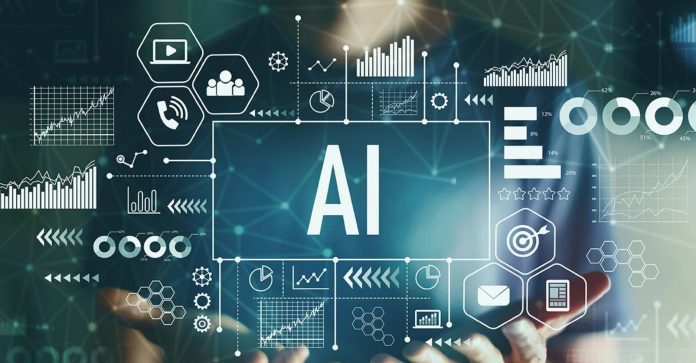By Pamela Martinez
Digital technology has transitioned from being a mere source of leisure to becoming an essential component of our daily lives. We are currently experiencing an era of unprecedented growth, where technological advancements have become fundamental to the functioning of modern workplaces. We live in a time of exponential growth, with technological advances becoming more fundamental than ever to today’s workplace.
As an essential component of this evolution, artificial intelligence has become increasingly present in the daily lives of people and organisations, being part of the routine of countless companies as a basis for process automation. Artificial Intelligence has become a game-changer across industries, transforming the way organisations operate and making a profound impact on top executive education.
As the business landscape evolves at an unprecedented pace, it is crucial for leaders to acquire the skills and knowledge to navigate the challenges of the future successfully through top executive education.
1. Personalized and Adaptive Learning Experiences
AI technologies have revolutionised top executive education by enabling personalised and adaptive learning experiences. These programs utilise AI algorithms to analyse participants’ data, identify their individual learning needs, and deliver targeted content accordingly. By tailoring the learning experience to each participant, AI-powered top executive education programs can maximise learning outcomes.
INSEAD Executive Education’s “AI Strategy: Leading with Data, Analytics, and AI” focuses on developing AI strategy and leadership skills. Participants learn to harness data, analytics, and AI to drive business growth and innovation. The course covers topics such as AI-driven decision-making, data-driven business models, and organizational transformation in the era of AI. Participants also work on case studies and engage in hands-on exercises to apply AI concepts in real-world scenarios.
2. Enhanced Decision-Making Capabilities
AI empowers leaders with enhanced decision-making capabilities by providing valuable insights and data-driven approaches. With natural language processing algorithms, leaders can analyse vast amounts of data, extract meaningful insights, and make more informed decisions.
The “Artificial Intelligence for Business Transformation” program offered by IMD focuses on the strategic application of AI for business transformation. Participants gain insights into the potential of AI technologies, such as deep learning and cognitive computing, and explore how AI can be integrated into existing business processes. The course also addresses the organizational and leadership implications of AI adoption.
3. Integration of AI in Learning Platforms
AI is also integrated into learning platforms to enhance the overall executive education experience. NovoEd, an online learning platform, leverages AI to provide personalised coaching and feedback to participants. By analysing performance data, the platform identifies knowledge gaps and delivers targeted content to address those gaps. AI-powered chatbots and virtual assistants also offer real-time support, answering learners’ questions and guiding them throughout their educational journey.
The University of Bath’s “Applied AI and Machine Learning for Business” provides practical knowledge and skills in applied AI and machine learning for business leaders. Participants learn to identify business opportunities, develop AI-driven solutions, and overcome implementation challenges. The course includes hands-on exercises, case studies, and discussions on the ethical implications of AI in business.
4. Ethical Considerations and Striking the Right Balance
While AI offers numerous benefits in executive education, ethical considerations should not be overlooked. Privacy, bias, and the preservation of human expertise must be carefully managed when utilising AI algorithms in education. Striking the right balance between leveraging AI for enhanced learning experiences and maintaining the human element is crucial. Educators and program designers must implement ethical frameworks and continuously monitor AI systems to ensure fairness, transparency, and accountability.
The “AI and Ethics: Implications for Business Leaders” program by Warwick Business School examines the ethical considerations associated with AI adoption. Students explore topics such as fairness, accountability, and transparency in AI decision-making. The program aims to equip executives with the knowledge and tools to navigate the ethical challenges and build responsible AI strategies.
Conclusion
AI has significantly impacted executive education by delivering personalised and adaptive learning experiences, enhancing decision-making capabilities, and offering valuable insights. Top executive education programs offered by prestigious universities have successfully leveraged AI to prepare leaders for the future. By integrating AI into executive education, organisations can ensure that their leaders are equipped with the necessary skills and knowledge to thrive in an AI-driven world.
It’s equally important to consider ethical implications and strike a balance between AI-powered advancements and human expertise. With careful planning and implementation, AI can be a powerful tool in preparing leaders for the challenges of the future.
About the Author
Pamela Martinez is a writer for The European Business Review. She is dedicated to crafting timely blog pieces about business acumen, changing leadership dynamics, emerging finance and technology trends, global breakthroughs and how these spaces intersect from a millennial’s perspective. She also works as an editor and content strategist and the sister publications of The European Business Review.





























![“Does Everyone Hear Me OK?”: How to Lead Virtual Teams Effectively iStock-1438575049 (1) [Converted]](https://www.europeanbusinessreview.com/wp-content/uploads/2024/11/iStock-1438575049-1-Converted-100x70.jpg)




